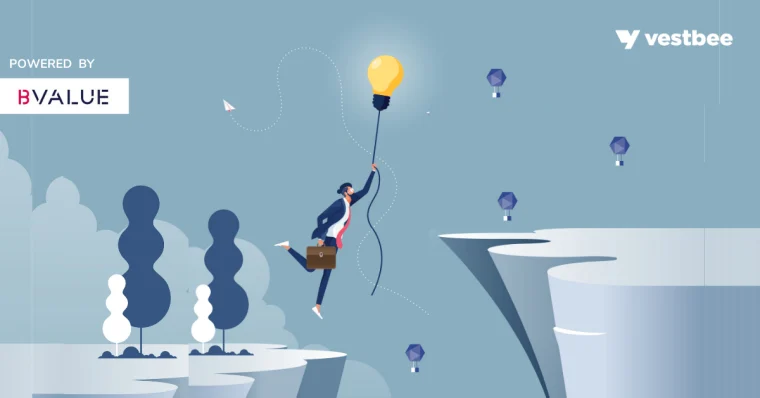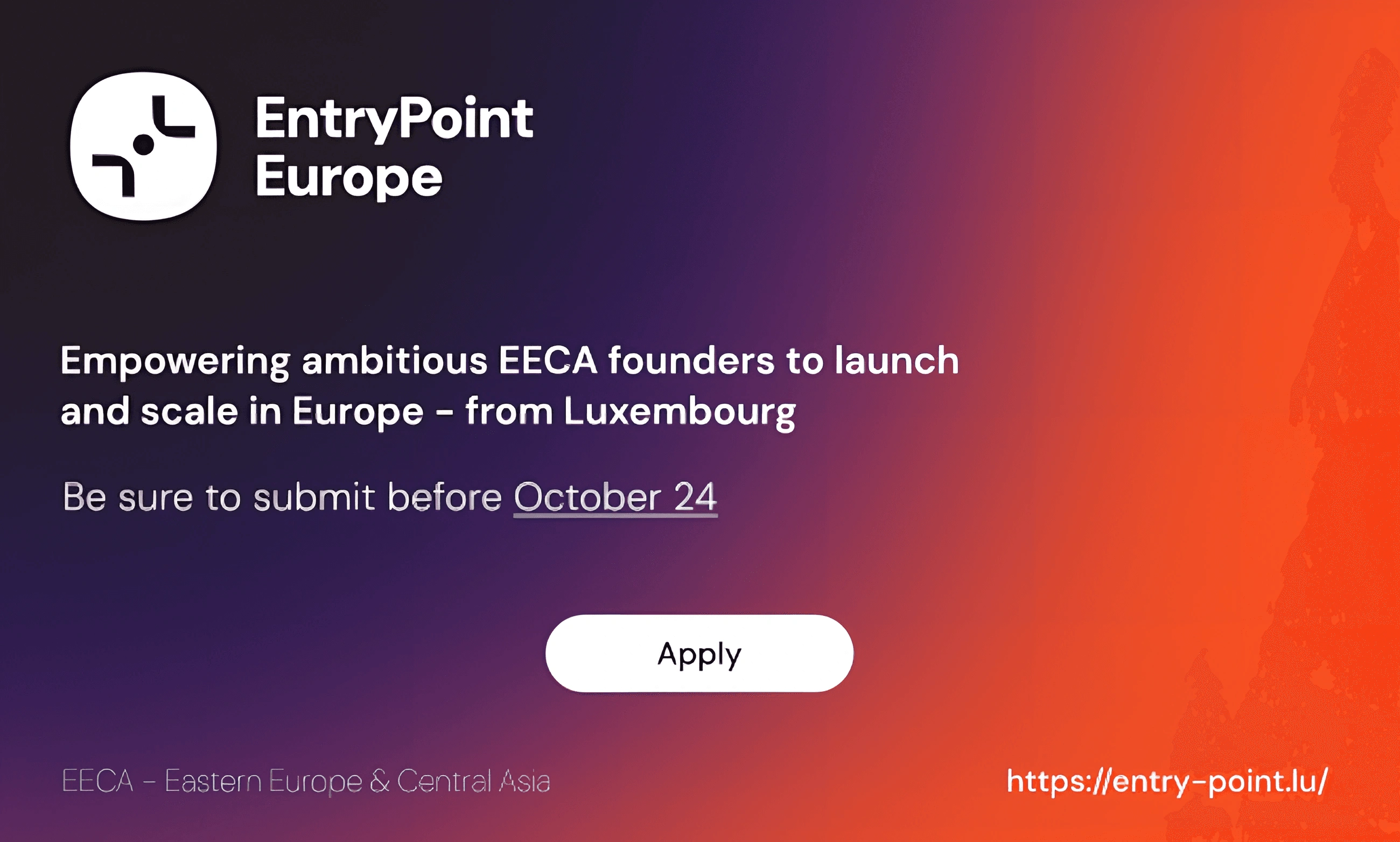Every fundraising startup needs to present its business to investors from the best side. Therefore, it’s crucial to come prepared and be ready for providing comprehensive and detailed answers in order to convince investors about business reliability and credibility. Below we present 15 key questions based on which bValue team tries to assess a startup. These questions touch on the key aspects of a company’s operations, its product, team, motivations, and plans so a startup founder should be prepared to answer them right away while meeting with a VC fund during the fundraising process.
So what are the most popular questions investors will ask a startup?
Founders and team
Investors perceive the founders of a startup as the essence of a successful company. Their role is even more significant at an early stage of the business when they do by themselves almost everything in order to transform the initial idea into a real company.
Every investor wants to get to know the background of the founders, what other work or entrepreneurial experiences they had before setting up the startup, what kind of studies they took. The startup should be able to explain who is responsible for which part of a business and if there is any lack of competencies in some of the startup’s areas in the current team - how it is going to be covered.
Product
Understanding what the product is, how it works, what problem it solves is crucial for the startup evaluation so potential investors need to understand the technology behind the product and how unique and defensible against new entrants it is. If the company offers services apart from the product, it should be described whether a product can be sold without services or services are just a source of additional revenues in order to kick-off the business. Companies that sell a product are usually more welcomed by investors as they tend to have greater potential for development and scaling.
Type of client, buying persona
The next area worth discussing is by whom the product is going to be used and who is going to pay for it. Whether it is aimed for B2C or B2B - if this is B2B, then the startup should know who is its main target group - SMB or enterprise. The distinction is essential from a sales process perspective as it determines what kind of competencies are needed. If the product can be sold to both types of B2B clients, one type should have priority, at least at the early stage of the startup. The sales process to SMBs may be done in a more automated way, i.e. customers visit the webpage, choose the plan, submit a credit card and start using – in this case, a sales cycle is usually short. Enterprise clients are different – the price of the product is usually higher but this kind of client needs a demo, usually some contact from the startup, so the sales cycle is longer and usually less predictable at an early stage of the business.
Competitive landscape
Another subject is competition. How many competitors are there on the market? Are they better or worse? How does their product differ? If the products are similar and are not based on advanced technology, the question is how our startup may compete and what are the chances to perform better than the rest. Price, better customer care or sales techniques may be the startup’s leverage - it’s all about finding something unique in the business that distinguishes entrepreneurs from others. Moreover, the startup should have a plan to build and/or maintain the defensibility of the product.
Business model
A way of generating money by a company is the next thing to talk about. There may be various business models, so founders should present their way of approaching their company - how they operate and why. Among popular business models, there are software as a service, sale of the license, freemium, marketplace, e-commerce, franchise.
Historical financial performance and plan for next 12-24 months
Traction of the company is a must-ask question. A potential investor wants to find out what the company achieved in terms of acquiring users, customers, PoCs, sales revenues so far. If the company can boast about the successful dynamic acquisition of clients and revenues, it usually makes investors listen more carefully. Taking into account the required returns for VC-backed investments it is expected that the company will increase the scale at least 3x annually. In line with this expectation, a startup should also have prepared a financial forecast together with assumptions and good arguments defending fast growth in the future.
Unit economics
It is understandable that early-stage companies often generate losses due to relatively high fixed costs and often substantial outlays spent on product development. However, it is expected that unit economics are positive and it gives an outlook at profitability when a certain scale is achieved. For SaaS businesses, it is believed that LTV to CAC should be at least 3. Good founders measure their businesses and know the metrics, e.g. for SaaS: MRR, LTV, CAC, churn, ARPU, customer lifetime, CAC payback period. Questions about such metrics will also probably be asked.
Sales strategy
Sales strategy is the major key to scaling. Startups should expect questions about leads acquisition channels, sales funnel. Founders should explain the split between channels, e.g. between SEO, SEM, outbound, inbound together with an average cost of lead in channels and conversions between stages. A company may also have some growth hacks or partnership programs. Sales strategy based on data and research builds a picture of reliable founders and increases the company’s chances of successfully raising funds from a VC fund.
Plans for the future
Once a VC got explanations to the above questions it is time to talk about the plans for the future. It is appreciated when founders present what they want to achieve in the mid and long term together with the presentation of plans for the product, scaling, and geographies. An investor wants to understand the foundrs’ vision and their aspirations.
KPIs for 12 months ahead
KPIs for the predictable future are next on the checklist. Founders should have defined what they want to achieve in the short term and should know what is needed to reach this point. This should cover the main areas of operations, i.e. product, team, sales, and any other important parts of business creation. Some frameworks for KPIs (like OITs, OKRs) are utilized by successful entrepreneurs.
Hiring plan and process
Along with KPIs a hiring plan is the next notable point to be covered. There should be a plan on who the founder needs to hire so the KPIs can be met. Not only vacancies are important to know but the process of collecting team members is even more significant. HR process enables to hire the right people and it is crucial for the company’s success. Bad hires are not only a waste of money but also of time. Team members should be complementary to each other and show real enthusiasm about the company.
Cap table
A capitalization table along with the time engagement of founders are key prerequisites for having a well-motivated team. It is expected that the founders should have a majority stake in the company at least till round A. Consecutive capital increases dilute the stake of the founders - so it is really important to have the right structure in the early days. If the founders have 5% on round A, it may signal potential motivation challenges if some obstacles are on the way. It is also expected that the founders dedicate all their business activity to the project that a VC fund is going to invest in.
Current funding round
Startups should provide an explanation of how much money is aimed to be raised in the current funding round and what are their expectations concerning the form of capital (equity, convertible notes, etc.). The potential investor seeks to be informed whether it is a proper round or it is some bridge financing. Moreover, the founder will be asked what are the timing expectations and what are the main uses of the cash obtained. Most potential investors would also like to know what is the stage of the round and whether there are some parties already committed. Another aspect worth mentioning is the number of investors the founders want to get along with, what type of investors they are looking for (VC fund, business angels, accelerators, etc.) and what expectations they have towards them.
Valuation expectations
The next point worth startup attention is a valuation expectation. This question is more to discuss a general range of expectations rather than to negotiate the precise valuation. VC fund asks this question in order to assess whether these expectations are rational and if there is a space for getting a deal if all other aspects are alright.
Runway – current and after the round
Usually, the investment round should be enough to run operations for approximately 18 months. A next funding round should be planned when the traction and valuation are higher, probably with new, later-stage investors. Another question that may arise is about the current runway before the company closes the round. If the company is very short of money it may indicate that terms suggested by the investor will be accepted more favorably.
The above questions constitute the basic set that allows investors to assess the key aspects of a company’s activity. As an example, after the startup presentation, bValue's investment team already knows if there is any potential for a deal. If the assessment is positive, we will suggest the next meeting or ask for additional information in order to drill down the aspects initially addressed which hopefully will lead us to an investment agreement.
Remember that startup fundraising can be a time-consuming process that involves, among others responding to many emails, attending meetings, doing enormous amounts of paperwork, and answering lots of questions from investors concerning your startup - so it's crucial to be prepared. For the purpose of streamlining the fundraising process and cutting time spent on answering the same questions, it may be a good idea to prepare a comprehensive startup pitch deck that may be accompanied by a Q&A section or create a professional startup profile on a fundraising platform like Vestbee that can be shared with potential investors. If a VC fund gets this ahead, then substantially fewer questions may be asked and you will be able to focus on business development.
Also, worth mentioning as a final fundraising tip - bear in mind that during discussions potential investors have a chance to see what kind of people the founders are and how they think and interact. In the end, a VC investment is a long-term relationship so both parties should also be compatible.
Related Posts:
A Bunch Of Tips On Pitching Your Startup to Investors (by Olga Chechłacz, Editor, Vestbee)
How To Write Elevator Pitch For Investors (by Ewa Chronowska, Partner, Next Road Ventures)
VC Tips For Successful Startup Fundraising (by Magdalena Balcerzak, Manager, Vestbee)







